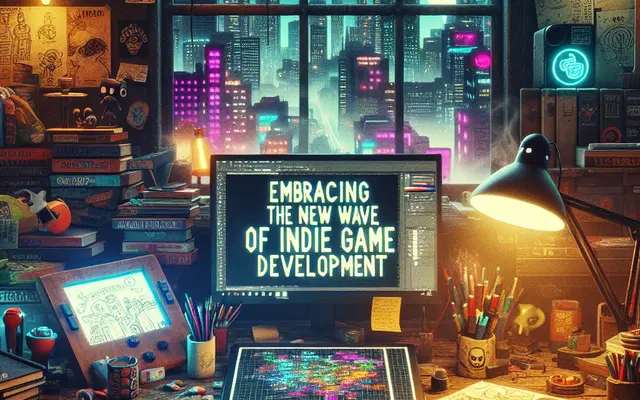The Impact of Indie Game Releases on the Gaming Scene

Redefining Creativity: The Indie Game Revolution
The indie game revolution has brought with it a wave of creativity and innovation unseen in previous gaming eras. Small teams and solo developers, unconstrained by the risk-averse nature of larger studios, have unleashed a myriad of unique gaming experiences. This surge in indie game releases has not only diversified the types of games available but has also inspired many within the industry to push the boundaries of what is possible in game design. Such freedom has resulted in genre-defying titles that challenge players in new and exciting ways, truly redefining creativity within the gaming scene.
In the indie sector, game design innovation is as much about storytelling and artistic expression as it is about gameplay mechanics. Indie developers often weave personal, poignant narratives into their games, creating emotionally resonant experiences that resonate with players on a deeper level. This approach contrasts with mainstream game development, which can sometimes prioritize graphics and technology over narrative depth. Moreover, the use of alternative and experimental game mechanics by indie developers has expanded our understanding of what games can be, thereby influencing the industry at large.
The ripple effect of indie game releases on the industry is tangible. By succeeding in a competitive market, indie developers have proven that there is an audience for games that venture off the beaten path. As a result, traditional gaming studios are beginning to take notice, often incorporating elements seen in successful indie games into their own projects. This shift has led to a more vibrant and varied gaming ecosystem, where new and established developers alike can find success through innovation and creativity.
Game Design Innovation in the Indie Sector
Indie games, emerging from small, passionate teams, have become a hotbed for original ideas and gameplay mechanics that deviate from the mainstream. This segment of the gaming industry often functions without the constraints of large-scale budgets and corporate oversight, allowing for a purer form of creative expression. As a result, indie titles like 'Braid', 'Limbo', and 'Hollow Knight' have introduced innovative design elements that challenge and expand the boundaries of what games can be. These games not only captivate players with their unique visions but also inspire other developers to explore new creative territories.
The impact of indie games extends beyond their immediate audience and influences the larger gaming ecosystem. Triple-A developers take note of the successful mechanics and narratives pioneered by their indie counterparts and often integrate these elements into their own projects. This exchange of ideas fosters a dynamic development culture where the line between indie and mainstream begins to blur, encouraging a broader evolution within the industry. The ingenuity found in the indie space is not just redefining genres, it's reshaping the expectations of gamers and critics alike.
The proliferation of indie game releases has also disrupted the industry by altering the traditional pathways to success. Digital distribution platforms like Steam and itch.io have democratized the publishing process, enabling independent creators to reach global audiences without the need for a major publisher. This shift has lowered entry barriers for aspiring developers and has led to a more diverse range of games being available to consumers. The indie scene is not only about introducing creative works; it's about changing the entire lifecycle of game development and distribution.
The Ripple Effect of Indie Game Releases on the Industry
The landscape of the gaming scene has been significantly altered by the proliferation of indie game releases. These smaller, often more experimental titles punch above their weight, introducing fresh perspectives and challenging norms established by mainstream productions. Through their unique storytelling and inventive gameplay mechanics, indie games like 'Celeste' and 'Hollow Knight' have garnered both critical acclaim and a dedicated following. The impact of these games extends beyond entertainment; they inspire a generation of developers, encouraging risk-taking and creative freedom in game design.
Indie game releases have democratized the gaming industry by lowering barriers to entry for aspiring developers. Utilizing accessible platforms and tools like Unity and Unreal Engine, small teams can now bring their visions to life without the need for a large budget or a major publisher's backing. This shift has led to a surge in diversity both in terms of game genres and the stories being told. With each indie release, the gaming landscape becomes richer, offering players experiences that stray from conventional formulae and delve into uncharted territories.
The influence of indie games on the broader gaming ecosystem reaches well beyond just the proliferation of new titles. Major industry players have taken note of the success and innovation these games represent, often adopting elements into their own blockbuster releases. These include embracing narrative depth, fostering community engagement, and incorporating distinctive art styles. In this way, indie games are encouraging positive changes in the industry, pushing all developers to prioritize originality and player experience over traditional commercial metrics.












